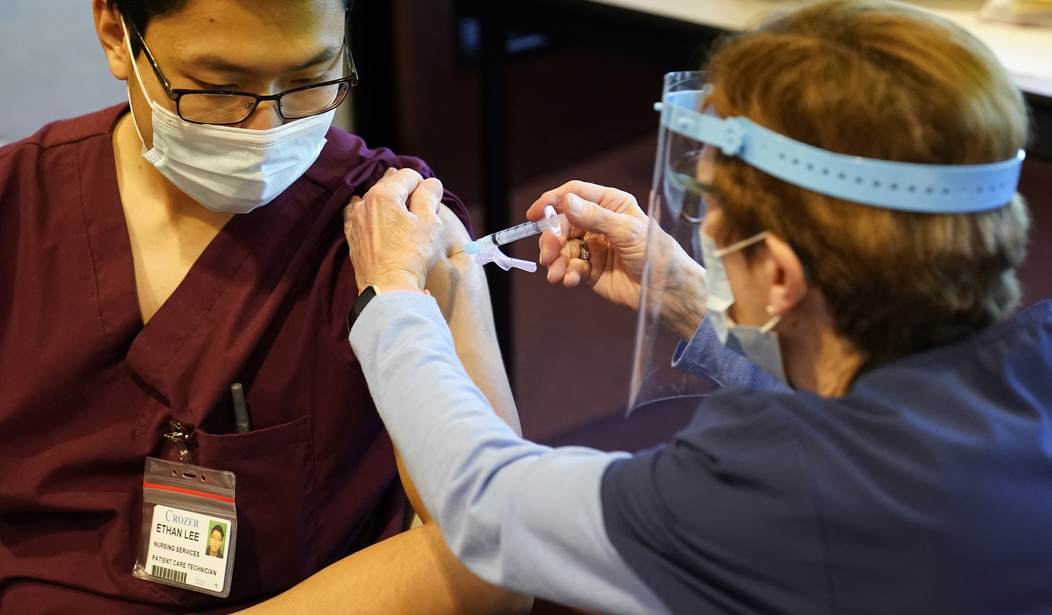Editor's Note: This column was co-authored by Pierre Kory.
AstraZeneca’s vaccine was widely expected to be a boon for developing countries. But its arrival has been a disappointment and only underscores the fact that ivermectin – a safe medicine that is effective against COVID-19 – should be part of an all-of-the-above strategy to end the pandemic.
One million doses of the vaccine arrived in South Africa in early February with pomp and ceremony. The delivery flight was closely watched from India to Johannesburg, where it was met by President Cyril Ramaphosa at the OR Tambo International Airport. Within days, however, a study showed the vaccine provided only minimal protection against mild-to-moderate infection from the strain most prevalent in South Africa. Now the vaccine is being offloaded to African Union countries that do not have this strain of the disease.
These problems haven’t been limited to Africa. A health scare around blood clotting in the European Union and concerns that the company touted inaccurate data in advance of its U.S. approval have plagued the international roll-out.
We hope that these problems are temporary and don’t mean to discourage adoption of AstraZeneca’s vaccine, or any other vaccine for that matter. From what we can tell, it works fairly well against many strains, and it’s a welcome addition to the tools doctors have to fight this plague. But it is, like other vaccines, far from perfect. Even in the best-case scenario, trials have shown the AstraZeneca vaccine confers 76 percent protection against COVID-19 infection.
Although ivermectin cannot be directly compared to a vaccine, let’s look at its efficacy. Research has demonstrated that using this medicine for prophylaxis can reduce the risk of COVID-19 infection by 92.5 percent. This is based on seven controlled trials on over 2,600 patients. Six of these were prospective trials, as opposed to the retrospective studies that some opposed to other preventative COVID-19 treatments have criticized. Three of those six were both prospective and randomized, meeting anyone’s standard for a credible study.
Recommended
Each subset of these trials shows the same thing: ivermectin reduces the chance of infection by over 90 percent. That’s not only comparable to the claims made for AstraZeneca’s vaccine. It’s significantly better, especially for short to medium term before we have global herd immunity through vaccination.
The British Ivermectin Recommendation Development Panel, following World Health Organization guidelines for meta-analysis of data, has recommended its use both to prevent and treat COVID-19. In so doing, they followed evidence that ivermectin both reduces the risk of infection and the risk of bad outcomes for those who get infected.
National and local health authorities around the world, from India to Japan to Mexico City and many places in between, have advocated for or adopted ivermectin as a standard of care for COVID-19. In this fight against a global pandemic, many are realizing that we can’t afford to ignore any treatment, let alone one with such good results.
We understand why policymakers are focused on vaccines. Vaccines will offer better, or longer-lasting, protection than any drug. But vaccine hesitancy, supply and logistical problems will remain – especially in developing countries. What we cannot understand is why a treatment with the promise of ivermectin is disregarded. It’s safe, well-known, and the data shows that it works.
Universal vaccination may be the eventual goal, and the U.S. will hopefully approach that goal sooner than most. But what about those countries left behind? Ivermectin could be surged to them now, not years from now, and could prevent infection and save lives. All we have to do is keep an open mind and follow the science where it leads.
The World Health Organization and National Institutes of Health now have all the data they need to recommend ivermectin to prevent and treat COVID-19. And those who want to end this pandemic now, for all countries rich and poor, should welcome that move.
Colleen Aldous, PhD is Professor and Health Care Researcher at the School of Clinical Medicine College of Health Sciences in Durban, South Africa. Pierre Kory, MD is President of the Front-Line COVID-19 Critical Care Alliance.

























Join the conversation as a VIP Member